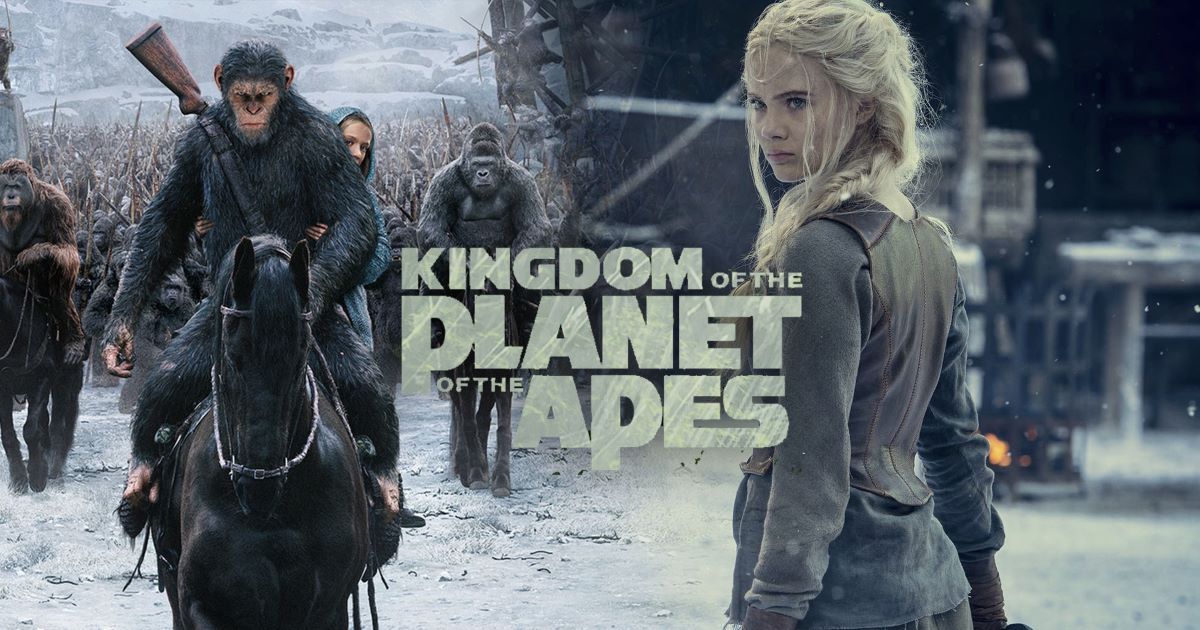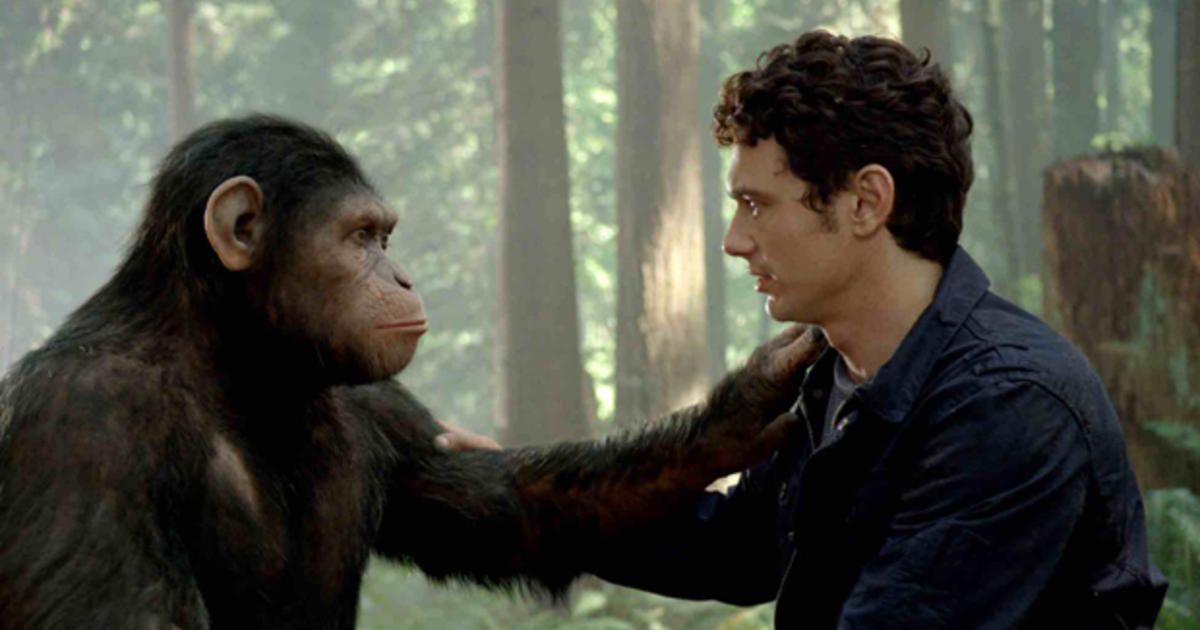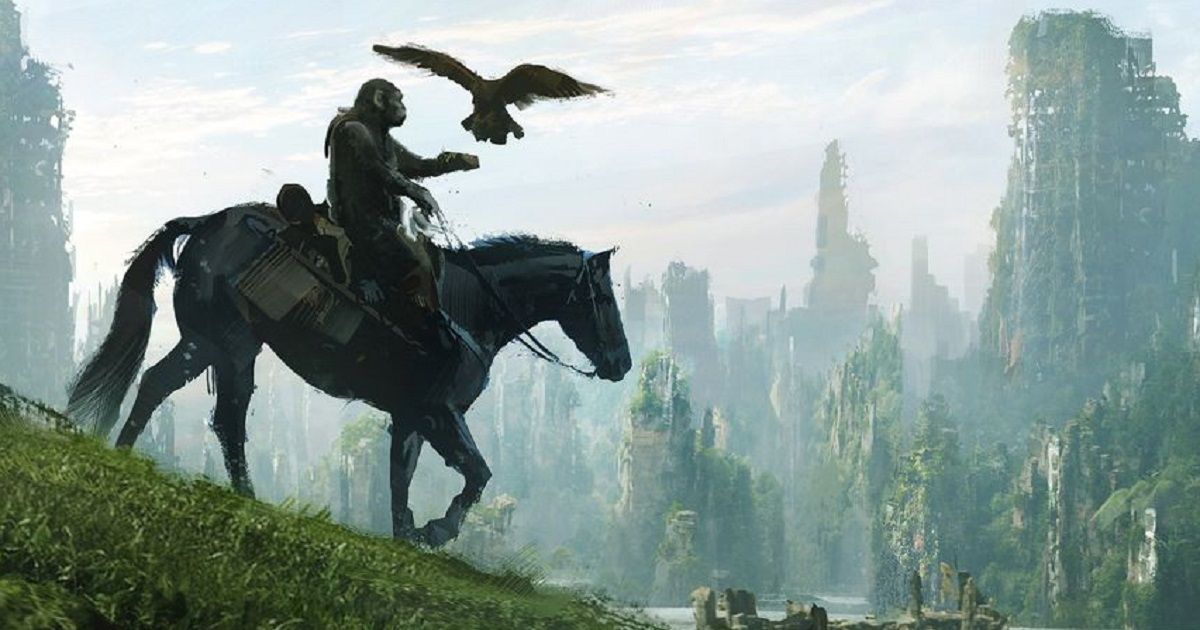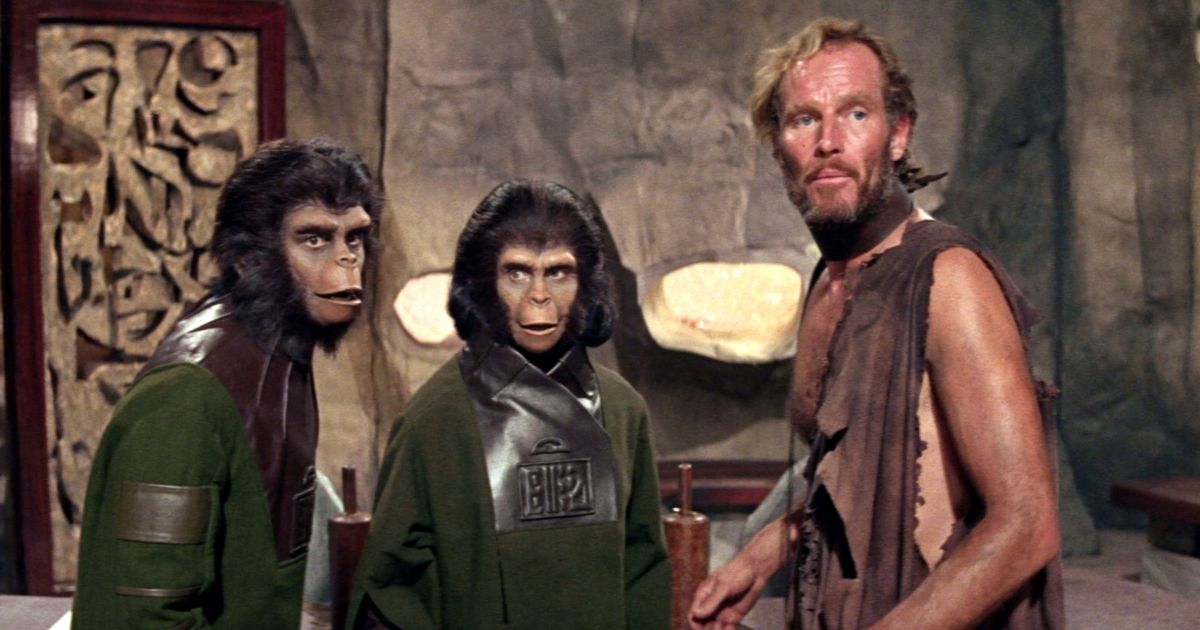Fans are going ape over the news that another Planet of the Apes reboot film is in the works. The original Planet of the Apes film in 1968 was a science fiction classic that spawned four sequels over the next five years. Although these sequels are not nearly as famous as the original, they have still fostered a number of devoted fans with their interesting sci-fi universe and tough moral questions. Over the next several decades, however, fans didn't get much to enjoy other than a failed TV series in 1974 and a poorly received remake by Tim Burton in 2001. Until, that is, the reboot trilogy which consisted of Rise of the Planet of the Apes in 2011, Dawn of the Planet of the Apes in 2014, and War for the Planet of the Apes in 2017.
Now, after another five years, we're getting another sequel titled Kingdom of the Planet of the Apes. Given the massive success of the reboot trilogy (which together grossed around $1.7 billion), it's really not a surprise that 20th Century Studios would greenlight another film — and potentially several more, as the studio is reportedly hoping to turn this into another trilogy. Kingdom, and likely any sequels that follow, will be directed by Wes Ball, who also directed The Maze Runner trilogy for 20th Century. Although the film is still a ways off — it won't release until 2024 — we can still make some educated guesses about what the movie's plot could be.
What Were the Previous Planet of the Apes Films About?
Kingdom of the Planet of the Apes will follow after the story of the reboot trilogy, so if we want to know what this new film will be about, we should first start here. In the first reboot/prequel film, Rise of the Planet of the Apes, William Rodman (James Franco) is a pharmaceutical chemist working to develop a drug called ALZ-112, a potential cure for Alzheimer's. At his lab, however, a chimpanzee used for drug testing breaks free and starts wreaking havoc. The powers that be decide to shut down the program and euthanize the rest of the test animals, but out of pity, William secretly takes the chimp's newborn baby home with him. It turns out that Caesar, as William names the baby, possesses abnormally high intelligence as a result of his mother being given ALZ-112 while he was in the womb.
As Caesar grows up, his intelligence continues to increase; he's able to solve puzzles more advanced than a human child his age could, he has an incredible proficiency with sign language, and eventually, he even gains the ability to speak. The older and more intelligent Caesar becomes, the more discontent he is with living in a cage. By the end of the movie, Caesar has broken free from the animal shelter he was being confined in, has liberated all the animals of the San Francisco Zoo, and leads them all to freedom in the Redwood Forest.
In the second film, Dawn of the Planet of the Apes, a global pandemic wiped out almost all of humanity. Only one in 500 humans remain, and these survivors are organized into small societies, but the majority of human civilization has collapsed — no electricity, no governments, and only little remaining technology. The apes who escaped captivity in the previous film have formed a colony in the forest. When they happen upon a group of human survivors, there is internal disagreement over how they should handle it. Caesar wants to be diplomatic with the humans and to treat them fairly; Koba, a former test-lab bonobo who still bears literal and figurative scars of his abuse, believes that humans cannot be trusted and should be killed.
When Koba discovers that the humans have weapons, he shoots Caesar and leaves him for dead, returns home, lies to the others that Caesar was killed by the humans, and forms an army to kill the humans. Koba and the apes destroy the human settlement, but Caesar, saved by a human family and nursed back to health, fights a climactic battle with Koba and kills him. However, the movie ends with the news that another human army is on its way there and that further war is inevitable.
The last of the reboot trilogy, War for the Planet of the Apes, starts with the apes and the human military, predictably, at war. Caesar and a few other apes act as a decoy to give the rest of the ape tribe time to escape to safety. On their way, they discover a young mute human girl named Nova, but together they are all captured and put into a prison labor camp. The commandant of the camp tells Caesar that the simian flu has begun to turn humans mute and cause them to devolve into much lower forms of intelligence. He also says that the U.S. Army is headed to the camp to develop a cure for the simian flu.
When the Army arrives, they start firing on the camp, and the apes use the confusion to flee to safety. The apes and Nova finally reach an oasis where they can set up a new home, but Caesar dies from a bullet wound, and the other apes promise to teach his young son who he was and what he did for ape kind.
How Kingdom of the Planet of the Apes Could Tie Into the Original
Very little has been revealed so far about the plot of the next film in the reboot series, Kingdom of the Planet of the Apes. However, the reboots have all been prequels to the original 1968 film, and each one gets closer in time to that film. The last movie, War for the Planet of the Apes, began to tie into the original movie much more directly, with the revelation about the simian flu causing humans to devolve and with the character of Nova, which will be discussed below.
One of the few facts we know about the new film is that it will take place many years after War, as reported by Deadline. This, combined with a few other scattered facts, tells us that Kingdom will likely start making serious connections to the original film, potentially even leading into it directly. It's important to remember crucial facts from the previous movie. First, in War, the antagonist tells Caesar that the simian flu, the virus that decimated most of humanity, has begun to turn humans mute and to decrease their intelligence to the level of other animals. However, this was only hinted at and will undoubtedly be shown in detail and further explored in Kingdom. This is a significant part of the lore that would explain why humans are so animalistic in Planet of the Apes.
Second, the mute girl in War that Caesar rescues is named Nova. This was also the name of a major character in the 1968 film. In that film, she was the scantily-clad love interest (played by Linda Harrison) of the human protagonist, astronaut George Taylor (played by Charlton Heston). And third, Owen Teague has been confirmed on the cast list as playing a lead character named Cornelius. Again, this is almost certainly the same Cornelius who appeared in the original Planet. In this film, Cornelius was a prominent ape scientist who risked his own life to help free astronaut Taylor from captivity.
Based on all this, it is inevitable that Kingdom will tie directly into the original film significantly and will most likely take place around 20 years beforehand. Owen Teague, who plays Cornelius here, is 23, whereas, in the original film, Cornelius was played by 40-year-old Roddy McDowall. The human lead in Kingdom will be played by Freya Allan, best known as teenage Ciri on Netflix's The Witcher. Although we don't know anything about Allan's role, we can gather that based on the importance of Nova in War, the relationship of Nova and Cornelius in Planet of the Apes, Allan's star image as someone who plays young and inexperienced characters, and the fact that she is the female lead, it would make sense for Freya Allan to be playing a teenage Nova.
Given the common themes of the Apes franchise, we can speculate that much of Kingdom will have to do with Nova's place in the ape society. The belligerent apes, which should become more numerous as the series gets closer to the time of the original film, will likely want to expel Nova from the colony or enslave her as a member of an inferior race (as is the case in the original movie). Most likely, young Cornelius will try to defend her. Director Wes Ball has said that the film will explore Caesar's legacy, a large part of which is the idea that humans should be treated equally.
What could throw a monkey wrench in these predictions, however, is the fact that 20th Century is hoping to turn this into a new trilogy. There are bound to be major tie-ins to the original Planet, but these may be stretched over three films. However much or however little is accomplished in Kingdom depends on how much they want to stretch the timeline out. Whatever the case may be, everything, including the film's title, the teaser image, and the timeline, point to the idea that Kingdom will at least explore further the de-evolution of humanity, the rise of the sophisticated ape civilization, and most likely the life of young Cornelius.
Questions that Need to Be Answered in Kingdom of the Planet of the Apes
If we consider the films from the perspective of the original 1968 Planet of the Apes, many questions still have to be answered. One of the biggest questions has been, “How did humanity become mute and devolve into mere animals?” War answered this with its reference to the simian flu, but we still have not seen this in action. In Kingdom, we will likely see the humans truly devolving to a mere fraction of the apes' intelligence.
In Planet of the Apes, ape society is incredibly sophisticated. They have armies, politicians, a government, a religion, doctors, scientists, houses, buildings, and so on. While Rise and Dawn explained how the apes achieved their abnormally high intelligence, none of the prequel films have shown how the ape civilization grew to such heights. In Kingdom, especially given the title, we will likely begin to have some of this explained.
After we see how ape society became so evolved, one of the things we still want to be answered is how that society became the dystopia it is in Planet. Humans are kept in slavery, apes are not allowed to travel freely, and speaking out against the ape religion can land one in prison, or worse. How did the ape society take such a dark turn? In addition, we want answers to a few more minor questions, such as the following: Are there other societies of humans out there, or have they all collapsed by this point in the story? Did the Army ever find a cure for the simian flu? How did the ape religion form? How will Caesar's legacy and memory be distorted? What was Cornelius like in his younger years? And how did Nova end up as a slave?




